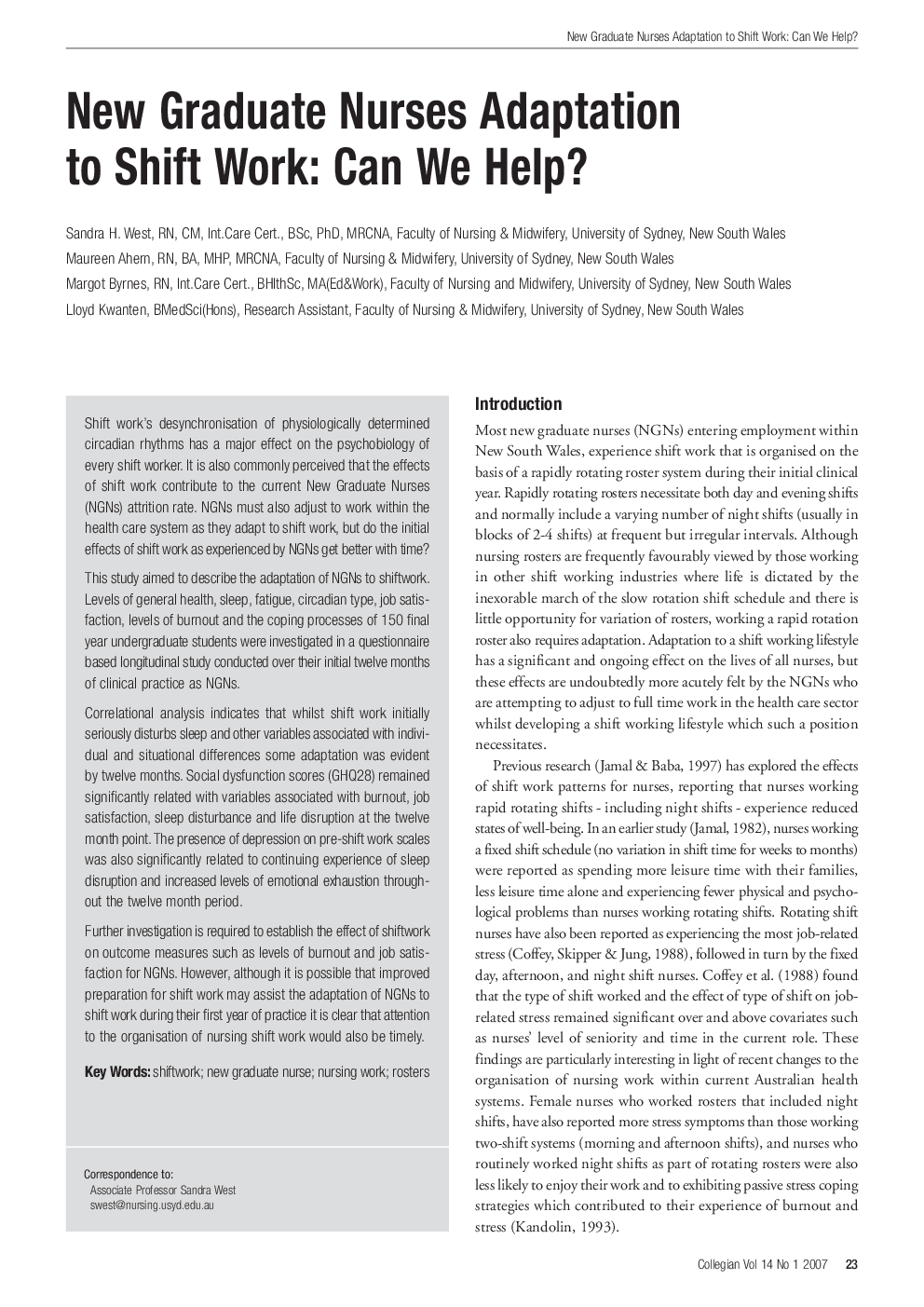| Article ID | Journal | Published Year | Pages | File Type |
|---|---|---|---|---|
| 2646845 | Collegian | 2007 | 8 Pages |
Shift work's desynchronisation of physiologically determined circadian rhythms has a major effect on the psychobiology of every shift worker. It is also commonly perceived that the effects of shift work contribute to the current New Graduate Nurses (NGNs) attrition rate. NGNs must also adjust to work within the health care system as they adapt to shift work, but do the initial effects of shift work as experienced by NGNs get better with time?This study aimed to describe the adaptation of NGNs to shiftwork. Levels of general health, sleep, fatigue, circadian type, job satisfaction, levels of burnout and the coping processes of 150 final year undergraduate students were investigated in a questionnaire based longitudinal study conducted over their initial twelve months of clinical practice as NGNs.Correlational analysis indicates that whilst shift work initially seriously disturbs sleep and other variables associated with individual and situational differences some adaptation was evident by twelve months. Social dysfunction scores (GHQ28) remained significantly related with variables associated with burnout, job satisfaction, sleep disturbance and life disruption at the twelve month point. The presence of depression on pre-shift work scales was also significantly related to continuing experience of sleep disruption and increased levels of emotional exhaustion through-out the twelve month period.Further investigation is required to establish the effect of shiftwork on outcome measures such as levels of burnout and job satisfaction for NGNs. However, although it is possible that improved preparation for shift work may assist the adaptation of NGNs to shift work during their first year of practice it is clear that attention to the organisation of nursing shift work would also be timely.
